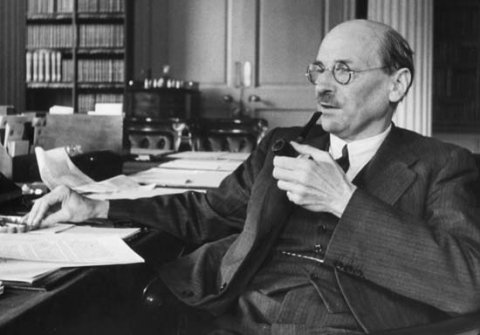History shows us that Labour will need to offer a radical alternative to Conservative austerity if we want to win in 2015.
After five years of unpopular coalition government, Britain heads for the polls. In the aftermath of the worst economic crisis ‘ever’, a Conservative-dominated government has imposed a stifling attack on public services, and the results are dramatic; poverty figures are the highest in a generation, inequality spiralling out of control, and political apathy grips the nation.

Sound familiar? It should, because the situation described above could as easily be 1935 as 2015. In the election of eighty years ago, the Labour Party, and indeed the country, faced a series of difficult challenges that have prescient undertones for today, and offer an insight as to how Labour can win on May 7th. More than that, the lessons from 1935 show that Labour needs to fight this election on a bold anti-austerity platform, not on peripheral issues.
We should start with the context. In 1931 the Labour government faced the aftershock of the Wall Street Crash, the worst economic crisis the world thought it had ever seen. When the Labour Cabinet refused to accept a programme of mass public austerity, a ‘National Government’ was formed, dominated by Stanley Baldwin’s Conservatives, although nominally ‘led’ by the controversial Labour dissident Ramsey MacDonald. When the election was called in 1935, Baldwin (who had replaced the disgraced MacDonald a year earlier) faced an unfancied Labour outsider, the unknown enigma Clement Attlee.
It is clear therefore that the fundamental debate of the 1935 election was the same as the underlying debate in 2015- does the country have to accept the Conservative programme of austerity, or is there a credible progressive alternative? Political broadcasts from the election show that the Conservative message has changed little throughout the decades, with Stanley Baldwin’s call for ‘Safety First’ a strong echo for David Cameron’s continuous claim that Britain ‘cannot afford’ to go back to a Labour government.
The unfancied Labour leader, Clement Attlee, was faced with a choice, which Ed Miliband could learn from; should he challenge head on the wisdom that the only way to save the economy is to impose ideologically-driven cuts, or to dodge the main issues. Sadly, Attlee chose the latter, and Labour fought the election ignoring underlining economic issues, instead focusing on Foreign and Imperial policies. The result was a demoralising victory for the Conservatives, and a further generation of austerity. Labour failed to address the key issues, and were punished at the polls.
The lessons are clear for today. As Ukip and the Conservatives seek to divert the conversation away from the economic failures of austerity and onto other issues such as immigration, Labour need to be resolute and set the agenda. Peter Kellner’s evidence suggests that there is a public willingness for an attack on austerity, and Labour’s best moments in 2014 came with the ‘Cost of Living’ campaign. There is also the added danger that if Labour doesn’t provide adequate anti-austerity alternatives, rivals such as the Greens will.
So the 1935 election has echoes down the ages for Labour in the run-up to May 2015. As a Conservative-led coalition ravages the fabric of British society, Labour must not shirk the challenge of confronting the economic arguments and myths underlying the debate. Ed Miliband may not be Clement Attlee, but he can avoid the mistakes the great man made eighty years ago. The messages from history are loud and clear; Labour need to be at their boldest and most radical in order to give Britain the win it badly needs.



More from LabourList
‘National flags and identity can be inclusive – we’re right to embrace them’
Revealed: Claims of bullying, misogyny and harassment in Young Fabians
‘Sunak’s claim of a ‘sick note culture’ is immoral and deeply flawed’